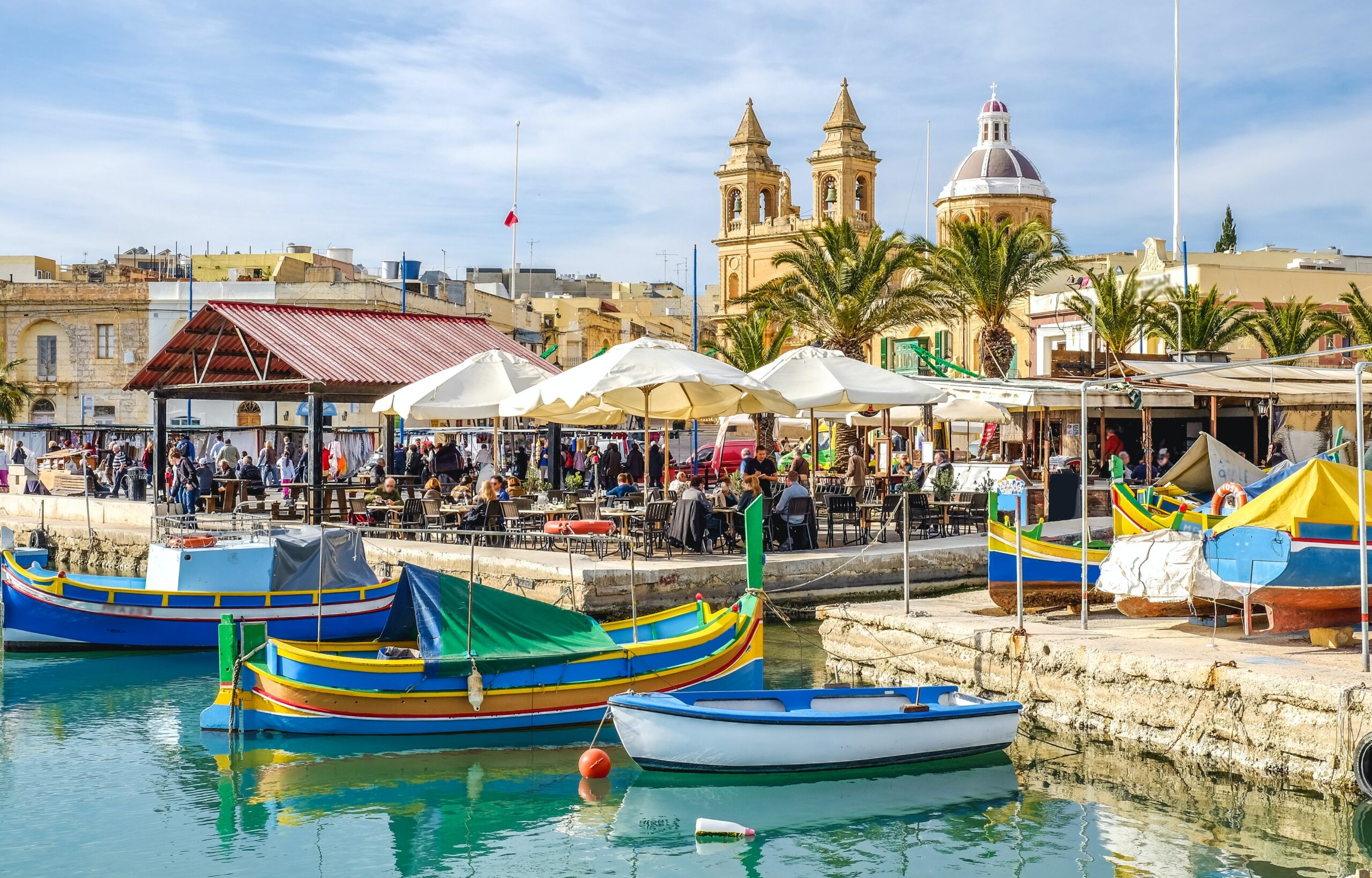The Maltese Language and the EU: limits and opportunities
Maltese is a Semitic language written using the Latin alphabet. It belongs to the South Arabian branch of Central Semitic and is believed to have originated in the 11th century after an influx of migrants from Sicily which spoke Siculo-Arabic.
It is spoken by approximately 400,000 people on the Maltese Islands, as well as in communities abroad. This language is of great importance to its population as it serves as a significant part of their heritage and it’s often used to claim their specific identity.
Maltese Identity
The Maltese identity is a unique amalgamation of diverse influences, shaped by historical interactions and cultural transformations.
“Neither Muslims nor Jews, neither Sicilians nor Arabs”, as mentioned by Frendo in “Malta. Culture and Identity”, the Arabic-speaking population of Hispanic-Sicilian Malta gradually developed its distinct identity during the Middle Ages. Over time, the Maltese language evolved as a separate entity, influenced by both Classical Arabic and Romance languages.
The language spoken by the population started to be considered a fundamental part of the Maltese identity during the colonial era. In that period, disputes about the Anglicization and the de-Italianization of the island played a crucial role in the formation of Maltese political parties. The resistance against assimilation and colonialism engendered a national political consciousness, fueled by the rivalry between pro-English and pro-Italian factions. Paradoxically, as reported by Frendo, it was this rivalry that led to the emergence of the Maltese language as a synthesis of the two influences.
After becoming independent from the United Kingdom on the 21st of September 1964, Malta finally chose Maltese as its official language, claiming its own specific identity.
Malta and its official languages
Nowadays, the archipelago’s linguistic situation is complex: while Maltese is the national language of the Islands, both Maltese and English are official languages of the state.
The Constitution specifically regulates the use of language in three main areas, such as the administration, the law courts and the parliament. For instance, Parliament is allowed to regulate “its own procedure” and “determine the language or languages that shall be used in Parliamentary proceedings and records” (Constitution of Malta, Chapter 1, Article 5). However, even though laws are to be enacted in both Maltese and English, “if there is a conflict between the Maltese and the English texts of any law, the Maltese text shall prevail” (Chapter 6, Part 1, Article 73).
The “Salib Case”
The situation became even more complex in 2004, when Malta entered the European Union and Maltese was recognized as one of the official languages of the EU. While this recognition has been seen as a positive step for the preservation and promotion of the Maltese language, it has also highlighted several challenges, including a lack of adequately trained interpreters and translators. These challenges were recently brought to light by the incident involving Alex Agius Salib, which happened during the European Parliament’s Committee on Employment and Social Affairs on the 22nd of March 2023.
Alex Agius Salib, a Maltese MEP, was delivering a speech in Maltese during the committee meeting when he was interrupted by the chair, who informed him that there was no interpretation available in his language. Salib continued to speak in English, stating that the lack of interpretation was a violation of his rights as a Member of the European Parliament and that the EU should do better in providing translation services for all of its official languages. The incident sparked a heated debate on social media and among language advocates, with many pointing out that this was not an isolated incident and that the lack of interpreters for lesser-spoken idioms was a systemic issue, a case of linguistic discrimination.
Limits of European linguistic recognition
The incident with Salib highlights the ongoing struggle for language parity within the EU. While the EU recognizes all of its official languages as equal, the practical realities of providing interpretation and translation services for all of those can be challenging. The EU currently has 24 official languages, with each of them requiring interpretation and translation services for all official EU meetings and documents. This means that the EU must provide linguistic tools for over 500 language combinations, making it the largest interpretation and translation service in the world.
However, providing these services for all of the EU languages presents its own set of difficulties, especially for lesser-spoken ones such as Maltese. As a result, the archipelago’s representatives in EU institutions often have to use English instead of their native language because of the shortage of qualified professionals who can interpret and translate from Maltese to other EU languages and vice versa.
The lack of interpreters and translators for Maltese is not just a problem for Maltese-speaking MEPs but also for the wider Maltese population, who may not always have access to information in their language. The EU promotes projects and provides funding for the promotion and preservation of all official languages, including Maltese, but the lack of interpreters and translators makes it difficult to fully benefit from this opportunity. This has led to a situation where the Maltese language is struggling to gain the same level of recognition and status as other official EU languages and the participation of Maltese citizens in the EU decision-making process risks to be affected by it.
To address this issue, there have been calls of the EU to provide more resources for language services, especially for lesser-spoken idioms. Even the Maltese government has taken steps to increase the number of interpreters, including offering scholarships for Maltese language studies and collaborating with universities to develop language programs. However, it may take some time for these efforts to bear fruit.
Maltese: an endangered language
Despite its official status, Maltese is considered an endangered language, as its speakers are facing significant challenges in preserving its use and promoting its growth. Threats such as globalization, urbanization and the increasing dominance of English in education, media and business are forcing speakers to give up on their national idiom or to use a mixture of both the languages in their daily lives.
Although the majority of the archipelago’s population considers Maltese as its first language, a 2012’s report conducted by META-Net exposed the dangers faced by Maltese and other european languages such as Icelandic, Latvian, Lithuanian, who risk digital extinction throughout the 21st century.
In fact, as pointed out by the Report on the Maltese Language of 2022 about its function in the digital world:
“There is as yet no coherent strategy for the management and curation of resources and tools at national level. This results in a lack of continuity, and the scarcity of domain-specific corpora. There are still major problems in getting the necessary authorisations to make use of language data in certain domains e. g. health and commerce, both of which are seen as sensitive”.
The dangers faced by Maltese have also forced President George William Vella to publicly take a stand during a conference for the “L-Ilsien Malti għal Qalbi” (I cherish the Maltese language) campaign, where he claimed that, even though “the English language is one of our most powerful tools for the advancement of the nation”, it is fundamental to “find ways to use both Maltese and English at the right times and in the correct ways”.
European linguistic recognition: pros
Despite the complex situation depicted above, the Maltese language has benefitted from its official status as one of the official languages of the European Union. Its position would have been much worse without this recognition, enhanced by the provisions of the Maltese Language Act.
The growth in Maltese vocabulary provided by the Maltese translators in Brussels and Luxembourg has been cited as a significant impact of membership: in particular, the impact of EU translations on the use of language in Maltese law has been significant. As stated by Fabri Ray in his article “Maltese”, the transposition process often occurs simply by copying the relevant parts of the EU directives and placing them in the legal notices. This indicates that the Maltese language variety formulated within EU institutions is transferred, often unmodified, into local legal documentation.
As Maltese is considered an endangered language by UNESCO due to its vulnerable status in terms of the number of speakers and the threat of language shift to English, the EU’s recognition of Maltese as an official language has been even more crucial for the language’s survival.
Conclusion
While the recognition of Maltese as an official language within the EU is a significant achievement, the lack of interpreters presents challenges that need to be addressed. It is essential to ensure that all EU citizens, regardless of their language, have equal access to information and can fully participate in the EU decision-making process. Increasing the number of Maltese interpreters will help to achieve this goal and ensure that the Maltese language continues to thrive and play a vital role in the EU, as its survival as a living language will depend on the commitment of both the EU and the Maltese government to promote and protect its linguistic heritage.

Irene Cristaudo


